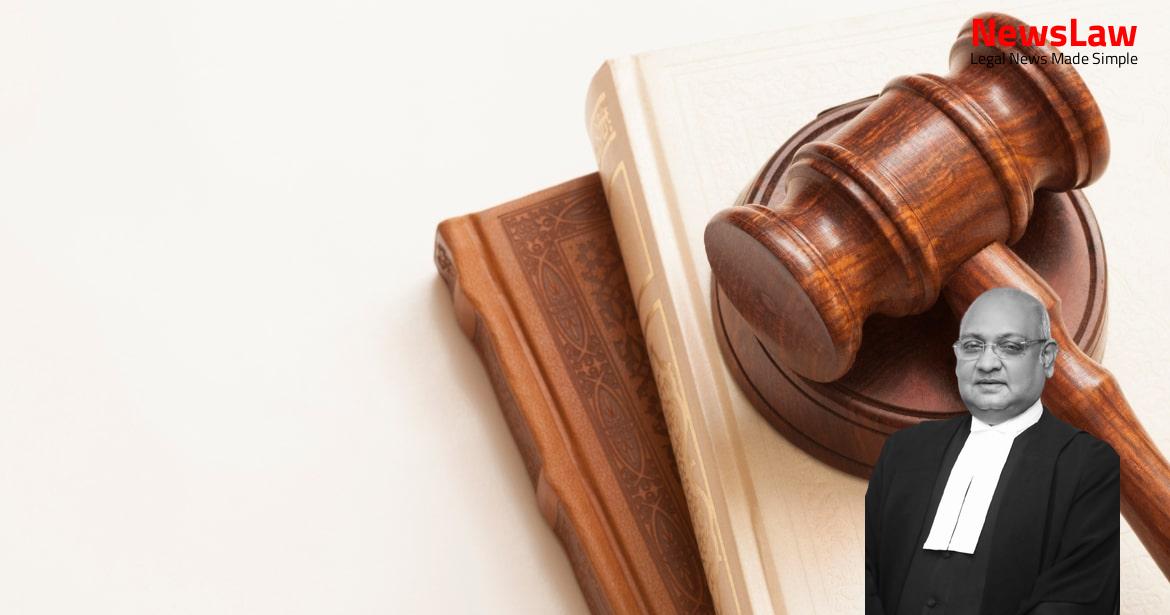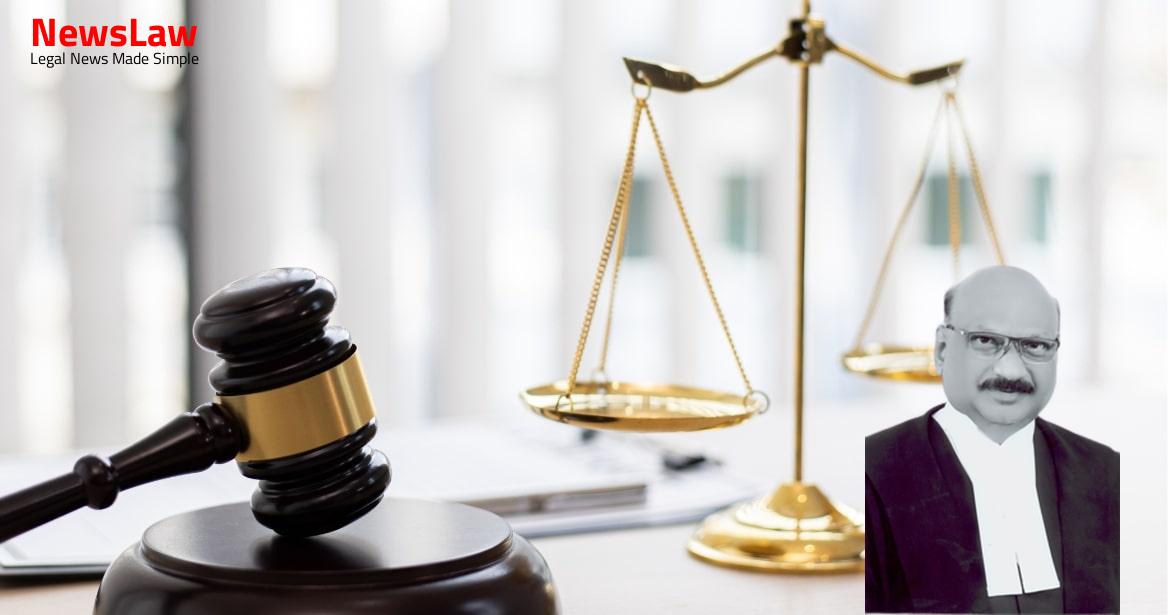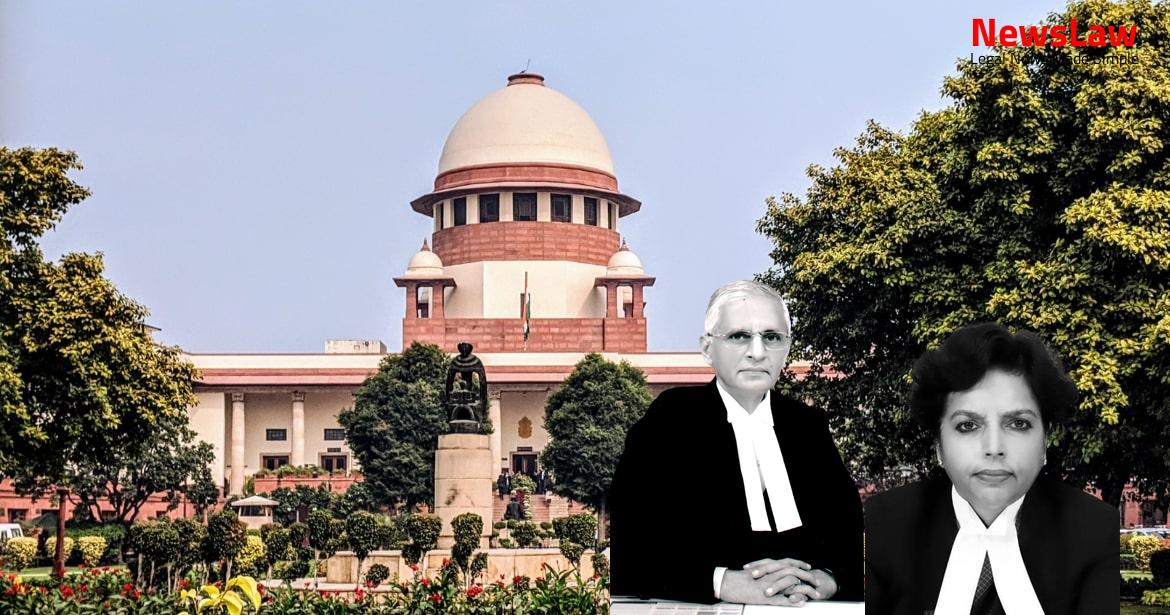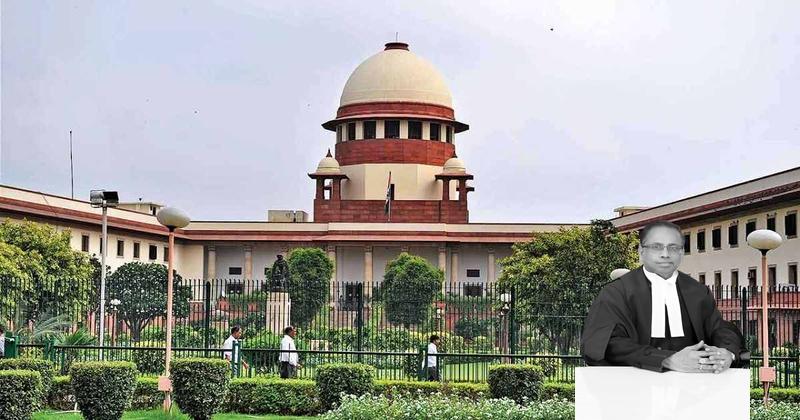In a significant legal battle between Dr. C.P.V. Vijayakumaran and the Vice-Chancellor of Central University of Kerala, the Supreme Court has issued a groundbreaking judgment. The case revolves around the termination of Dr. C.P.V. Vijayakumaran’s services, raising questions about stigma and reputation. Stay tuned to learn more about the verdict and its implications.
Facts
- Appellant was appointed as Associate Professor in the Department of Hindi on 12.6.2017.
- Complaints were filed against the appellant by students on 13.7.2017, 14.7.2017, and 29.8.2017.
- A Committee conducted an inquiry based on the complaints.
- The inquiry report with findings and recommendations was submitted by the Committee.
Also Read: Land Acquisition Challenges for Integrated Infrastructure Project
Issue
- The issue in question is whether the order dated 30.11.2017 issued by the Vice-Chancellor of the Central University of Kerala, terminating the services of Dr. C.P.V. Vijayakumaran, is a simple termination or carries a stigma.
- Dr. C.P.V. Vijayakumaran was appointed as an Associate Professor in the Department of Hindi at the University on probation for 12 months, extendable up to 24 months.
- The contract specified that if the teacher is found unsuitable during the probation period, the Executive Council may terminate the service without notice.
- The order dated 30.11.2017 mentioned that Dr. C.P.V. Vijayakumaran’s performance was not suitable for continuation and confirmation, leading to the immediate termination of services.
- The key question is whether this termination order was based on performance alone or carried a stigma affecting Dr. C.P.V. Vijayakumaran’s reputation.
Also Read: Legal Interpretation of Mortgage Validity in Auction Dispute
Analysis
- The removal of a teacher or a member of the academic staff is effective from the date of the removal order, unless the individual is under suspension at that time, in which case the removal is effective from the date of suspension.
- The engagement of a teacher or member of the academic staff cannot be terminated by the University unless specific grounds are present and a defined procedure is followed.
- Allegations of misconduct against a teacher or academic staff member may lead to suspension by the Vice-Chancellor, subject to reporting to the Executive Council.
- The Executive Council has the authority to revoke a suspension order if it deems fit.
- The Executive Council can remove a teacher or member of the academic staff on the grounds of misconduct, despite the terms of their contract.
- Removal of a teacher or academic staff member can only occur for good cause, with a three-month notice period or payment in lieu of notice.
- Before removal, the individual must be given a reasonable opportunity to present their case.
- A two-thirds majority of the Executive Council members present and voting is required for the removal of a teacher or academic staff member.
- Any disputes related to this contract will be resolved following the Central University of Kerala’s provisions.
- The termination order was considered to be stigmatic and punitive due to the involvement of serious allegations and formal inquiries.
- The order was based on the report of the Internal Complaints Committee and the decision of the Executive Council, along with academic performance concerns.
- The termination order was not seen as a simple termination but as a result of a formal inquiry after finding the appellant guilty.
- The order referred to the resolution of the Managing Committee and included a recommendation to proceed against the appellant.
- The termination order mentioned sexual misconduct allegations against the appellant, leading to a stigma.
- The termination was viewed as an imposition of a penalty for misconduct rather than a simple termination.
- The High Court upheld the termination as simple, while the Division Bench affirmed that view.
- In the case of Indra Pal Gupta vs Managing Committee, the order of termination of probation referred to a resolution by the Managing Committee and subsequent approval by the competent authority.
- The termination order did not contain any offensive content itself.
- The order referred to a resolution stating that the facts reported by the Manager were serious and not in the interest of the institution, leading to the unanimous decision to terminate probation.
- The reference to the three earlier letters in the termination order did not in itself contain any stigma.
- The appellant is to be reinstated following the illegal termination order dated 30.11.2017.
- The decision on granting backwages and other benefits, as well as conducting a departmental or regular inquiry, is left to the relevant authority in accordance with the law.
- The termination order is deemed illegal as it was stigmatic and issued without conducting a proper inquiry as per the service rules.
Also Read: Interpretation of Provisions in the 1946 Act: Jurisdiction of the CBI
Decision
- The impugned judgments and orders dated 30.1.2018 and 20.2.2018 passed by the High Court are set aside, along with the order of termination dated 30.11.2017 issued by the Vice-Chancellor of the University.
- The appellant is directed to be reinstated, and further actions regarding backwages, suspension, and inquiries should be taken by the University in accordance with the service rules and law.
- The decision regarding backwages and benefits for the period between dismissal and reinstatement is left to the University to decide after the completion of proceedings and depending on the final outcome.
- The reinstatement should be treated as a reinstatement for the purpose of conducting a fresh inquiry from the stage of furnishing the report and no more, as per the law.
- The entitlement to backwages is subject to the outcome of further actions by the University as per the service rules.
- The appeal partially succeeds, and pending interlocutory applications shall stand disposed of.
Case Title: VIJAYAKUMARAN C.P.V Vs. CENTRAL UNIVERSITY OF KERALA (2020 INSC 93)
Case Number: C.A. No.-000777-000777 / 2020



